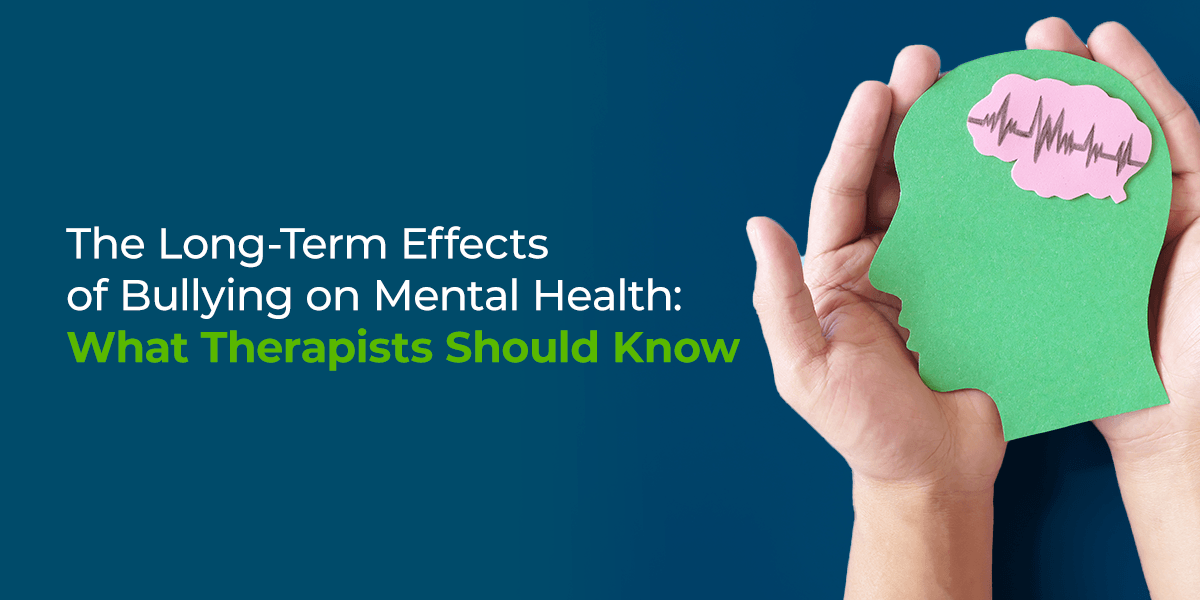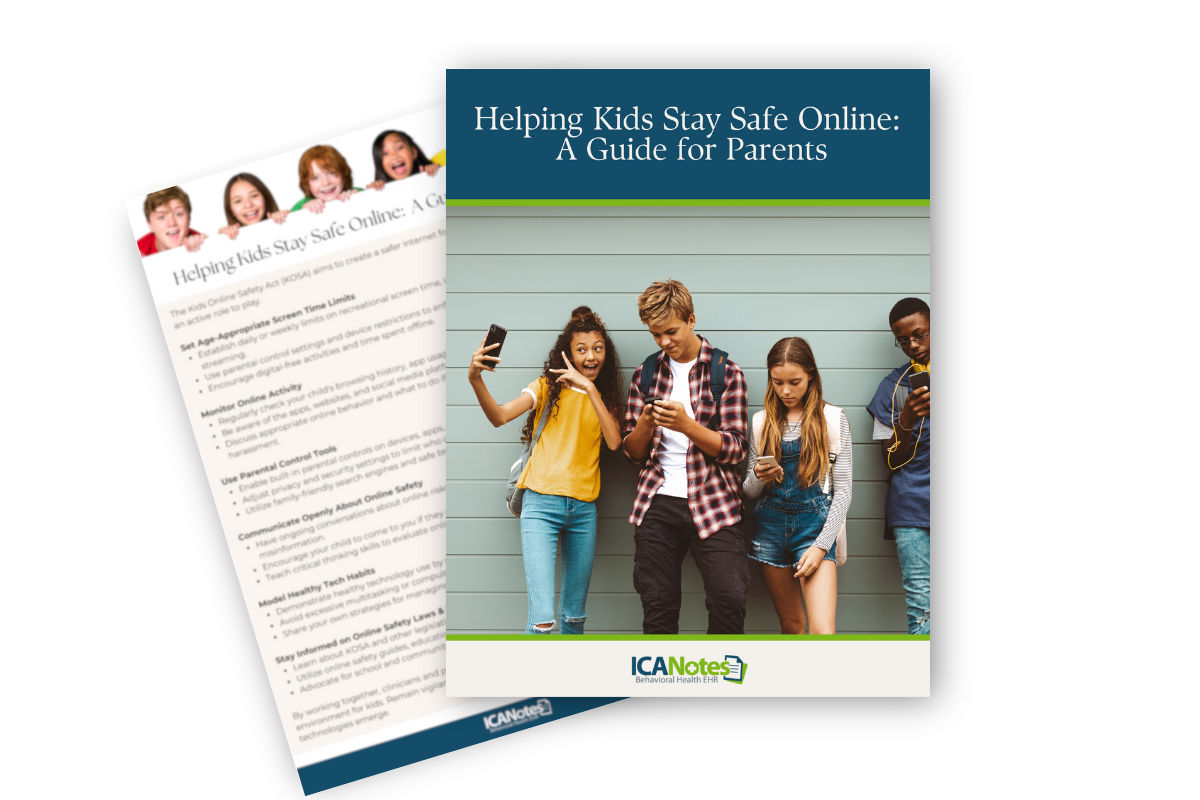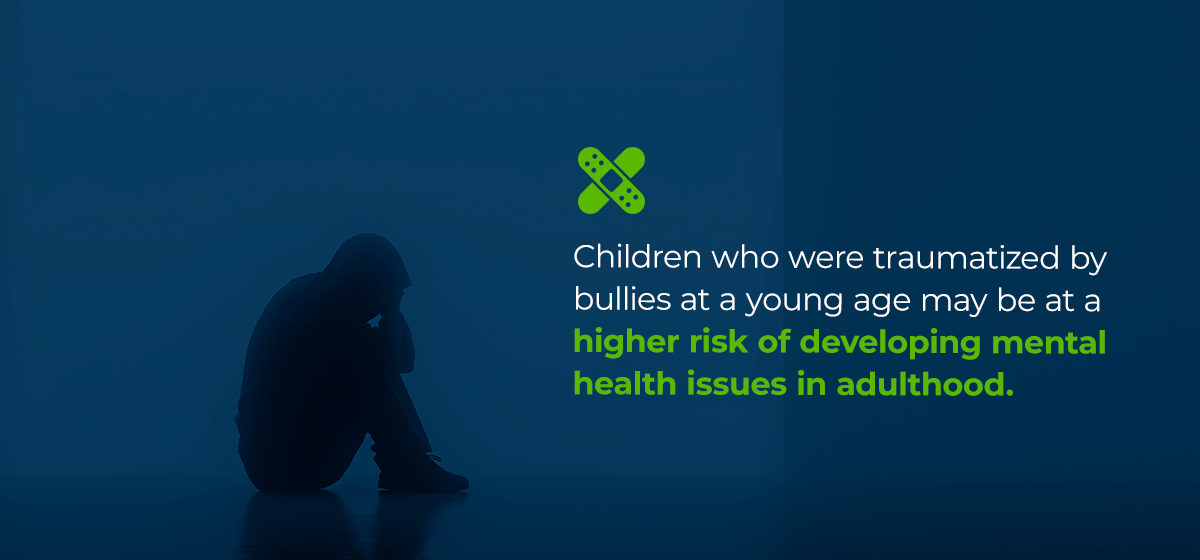
The Long-Term Effects of Bullying on Mental Health: What Therapists Should Know
Bullying has long been a crisis for many children and young adults. Research indicates that more than half of U.S. teens consider online bullying a major problem, and the classroom remains the most common place for bullying. According to the Centers for Disease Control and Prevention, bullying is most common during middle school and high school. There are many types of bullying that one can experience, including cyberbullying, harassment, physical attacks, and social or relational harm. Female students and those who identify as LGBTQIA+ experience bullying more than their peers.
The long-term effects of bullying on mental health can be detrimental. A child who was once bullied can become an adult with minor to severe mental health issues as a result of untreated trauma. Individuals who have bullied others may also be affected by a mental health condition. If you are treating a patient who has shared their experiences with bullying or being bullied, use this guide to learn about the long-term effects of bullying into adulthood, how it may manifest in your patients and what you can do to support them.
FREE DOWNLOAD:
Provide your client families with this essential guide to online safety, tailored for parents navigating today’s digital landscape. This resource offers practical strategies to set screen time boundaries, monitor online activity, and encourage open conversations about internet safety. Download the guide to help create a healthier, safer online environment for young minds.

Short- and Long-Term Effects of Bullying
Bullying is a form of abuse. Bullying is the act of intentionally putting someone down in an attempt to gain dominance over them. Whether that be with harmful words, physical attacks or indirect rumor-spreading, bullying can have many emotional and physical effects on the victim.
There are many immediate and prolonged psychological effects associated with being bullied. These are some common short-term impacts of bullying:
- Barriers to education, such as lower grades or missing school
- Retaliation
- Reduced well-being
- Being excluded
- Bed-wetting
- Self-harm
- Suicidal thoughts or ideation
- Depression
- Anger
- Poor appetite
- Feeling tired
- Avoiding settings where bullying may occur
Long-term effects of bullying can follow children into adulthood. They include the following:
- Anxiety and depression
- Sleep difficulties, such as fatigue or restlessness
- Avoiding certain social activities
- Loneliness
- Fear
- Reduced likelihood of getting a job
- Increased likelihood of premature death
- Difficulty concentrating
- Lingering feelings of anger
- Desire for revenge
- Low self-esteem
- Considering oneself to be overly sensitive
- Difficulty trusting others
- Interpersonal difficulties
- Increased likelihood of negative coping strategies, such as alcohol and drug use
Children who were traumatized by bullies at a young age may be at a higher risk of developing mental health issues in adulthood, including depression, anxiety and post-traumatic stress.

Bullying Mental Health Effects on the Bully
Some children bully because they lack attention from their loved ones or have experienced bullying from their parents. Exposure to adverse events during childhood increases the likelihood of becoming a bully. Bullying is a learned behavior and may be exacerbated in children with naturally aggressive or impulsive personalities. For instance, those who display a lack of empathy, aggression and a desire for power are more likely to become bullies.
Some victims of bullying begin bullying others to get relief from feeling helpless, remove attention from themselves or release the aggression they feel after the way they've been treated. Whatever the reason, it's essential to note that there are many potential long-term effects of bullying on the bully, such as low self-esteem, depression and psychotic symptoms. Bullying others can also lead to the development of antisocial behaviors, academic problems, reduced accountability and substance use disorders in adulthood.
Bullies who have not learned how to treat others with respect and compassion can benefit from rehabilitation and intervention strategies, such as social skills training, talk therapy, support groups and classroom anti-bullying programs.
Therapeutic Approaches to Address Bullying Trauma
Whether you're treating a young patient experiencing bullying in middle school or an adult who was bullied as a child, there are several types of trauma treatment for bullying.
Trauma-Focused CBT
Cognitive behavioral therapy (CBT) is effective for many mental health conditions, including post-traumatic stress disorder (PTSD) and suicidal ideation and intent. CBT is designed to help patients regulate their emotions by challenging their negative and distorted thoughts and beliefs about the world as a result of their bullying experiences. Trauma-focused CBT can also help reduce the likelihood of maladaptive coping strategies by encouraging patients to move forward in a positive way.
Family Therapy
Young individuals who bully other children may be dealing with some form of abuse at home. Family therapy is an effective treatment method that encourages families to break abusive cycles, stop hurting others and have a safe place to deal with their feelings. During family therapy, you can encourage family members to manage their emotional responses without name-calling or aggression.
Family therapy can also be a great opportunity for victims of bullying to share their experiences and feel supported by their loved ones. For example, a teen who is dealing with bullying at school may feel comforted by their siblings or parents during family therapy when they can engage in mindfulness and relaxation exercises together.
Importance of Documenting Bullying Cases
Patients who have been bullied or have been bullies in the past deserve access to quality, nonjudgmental care. As a counselor, psychologist or other behavioral health professional, you play an essential role in these therapeutic processes by monitoring your patient's progress through clinical documentation.
Your documentation is a critical tool for communication, collaboration and continuity of care. Social workers, nurses, physicians and other authorized professionals who may be involved with the patient's care can readily access their family history, medication, progress, treatment and outcomes.
Accurate documentation also helps ensure you abide by your requirements as a mental health professional and acts as a record to show you've provided competent treatment to your patients. Carefully noting your clinical work can help you identify areas of improvement, allowing you to assess the effectiveness of mental health interventions and make changes as needed. Accurate and complete records will also help you stay consistent with legal and ethical standards.
Why Trust ICANotes?
From outpatient counselors to inpatient psychiatrists, your work as a behavioral health professional is indispensable. At ICANotes, we've designed an integrated behavioral health software solution to meet your most pressing needs, including:
- Reducing documentation time.
- Improving documentation legibility and accuracy.
- Reducing rejected claims and under-coded therapy notes.
- Increasing turnaround time of clinical documentation.
- Simplifying charting, electronic billing and practice management.
Since 1999, we've helped clinicians like you spend less time handwriting notes at your desk and more time providing quality care to your patients. Our founders have decades of combined experience in the behavioral health field and a passion for integrating the latest technology to improve record-keeping. We understand the importance of improving efficiency without compromising quality.
Whether you're inputting mental health progress notes or conducting a comprehensive assessment, our intuitive templates can help you document quickly and accurately without typing.

Try ICANotes for Comprehensive Documentation and Treatment Planning
The effects of bullying can impact people of all different backgrounds. If you're treating a patient for trauma related to bullying, know that your record-keeping plays a significant part in helping them recover. By maintaining accurate progress notes and updating their treatment plans effectively, you can better support your patients and deliver the quality care they deserve.
ICANotes is your best resource for efficient documentation and practice management in behavioral health. Our intuitive, clinically robust platform makes it easy to create personalized narrative therapy notes that cover your patient's mental status exam, behavior, symptoms, history and therapeutic interventions. Spend less time writing and typing and more time learning how to better support patients who've been affected by bullying with ICANotes. We invite you to start your free trial today or request a live demo.
Sources:
https://www.pewresearch.org/short-reads/2023/11/17/9-facts-about-bullying-in-the-us/
https://www.cdc.gov/youth-violence/about/about-bullying.html
https://nap.nationalacademies.org/resource/23482/toolkit/teachers/teachers.pdf
https://www.sciencedirect.com/science/article/pii/S0277953624001345
https://www.ncbi.nlm.nih.gov/pmc/articles/PMC9360357/
https://www.ncbi.nlm.nih.gov/books/NBK441930/
https://www.medicalnewstoday.com/articles/effects-of-bullying
https://www.ncbi.nlm.nih.gov/pmc/articles/PMC10448948/
https://www.ncbi.nlm.nih.gov/pmc/articles/PMC10478092/


